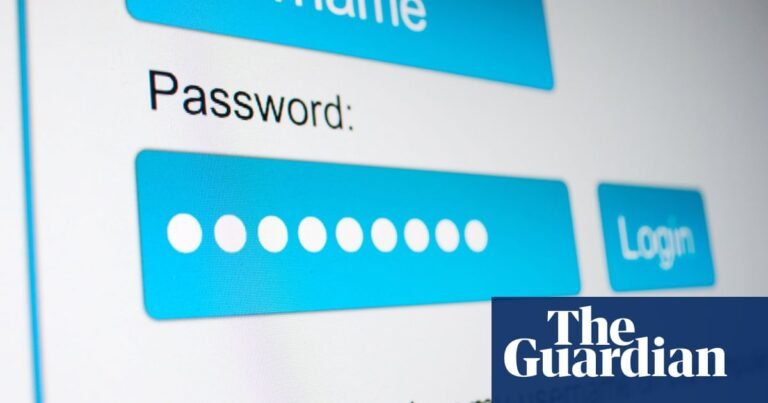Internet users have been told to change their passwords and upgrade their digital security after researchers claimed to have revealed the scale of sensitive information – 16bn login records – potentially available to cybercriminals.
Researchers at Cybernews, an online tech publication, said they had found 30 datasets stuffed with credentials harvested from malicious software known as “infostealers” and leaks.
The researchers said the datasets were exposed “only briefly” but amounted to 16bn login records, with an unspecified number of overlapping records – meaning it is difficult to say definitively how many accounts or people have been exposed.
Cybernews said the credentials could open access to services including Facebook, Apple and Google – although there had been no “centralised data breach” at those companies.
Bob Diachenko, the Ukrainian cybersecurity specialist behind the research, said the datasets had become temporarily available after being poorly stored on remote servers – before being removed again. Diachenko said he was able to download the files and would aim to contact individuals and companies that had been exposed.
“It will take some time of course because it is an enormous amount of data,” he said.
However, other cybersecurity experts said the data was likely to have already been in circulation and contain multiple repetitions.
One expert, speaking on condition of anonymity, said: “We’re sceptical of the data, particularly how much of it is just repetition of the same information. It’s difficult to verify it without having the data.”
Diachenko said the information he had seen in infostealer logs included login URLs to Apple, Facebook and Google login pages. Apple and Facebook’s parent, Meta, have been contacted for comment.
A Google spokesperson said the data reported by Cybernews did not stem from a Google data breach – and recommended people use tools such as Google’s password manager to protect their accounts.
Internet users are also able to check if their email has been compromised in a data breach by using the website haveibeenpwned.com. Cybernews said the information seen in the datasets followed a “clear structure: URL, followed by login details and a password”.
Diachenko said the data appeared to be “85% infostealers” and about 15% from historical data breaches such as a leak suffered by LinkedIn.
Experts said the research underlined the need to update passwords regularly and adopt tough security measures such as multifactor authentication – or combining a password with another form of verification such as a code texted from a phone. Other recommended measures include passkeys, a password-free method championed by Google and Facebook’s owner, Meta.
“While you’d be right to be startled at the huge volume of data exposed in this leak it’s important to note that there is no new threat here: this data will have already likely have been in circulation,” said Peter Mackenzie, the director of incident response and readiness at the cybersecurity firm Sophos.
Mackenzie said the research underlined the scale of data that can be accessed by online criminals.
“What we are understanding is the depth of information available to cybercriminals.”
He added: “It is an important reminder to everyone to take proactive steps to update passwords, use a password manager and employ multifactor authentication to avoid credential issues in the future.”
Toby Lewis, the global head of threat analysis at the cybersecurity firm Darktrace, said the data flagged in the research is hard to verify but infostealers – the malware reportedly behind the data theft – are “very much real and in use by bad actors”.
He said: “They don’t access a user’s account but instead scrape information from their browser cookies and metadata. If you’re following good practice of using password managers, turning on two-factor authentication and checking suspicious logins, this isn’t something you should be greatly worried about.”
Cybernews said none of the datasets have been reported previously barring one revealed in May with 184m records. It described the datasets as a “blueprint for mass exploitation” including “account takeover, identity theft, and highly targeted phishing”.
The researchers added: “The only silver lining here is that all of the datasets were exposed only briefly: long enough for researchers to uncover them, but not long enough to find who was controlling vast amounts of data.”
Alan Woodward, a professor of cybersecurity at Surrey University, said the news was a reminder to carry out “password spring cleaning”. He added: “The fact that everything seems to be breached eventually is why there is such a big push for zero trust security measures.”


